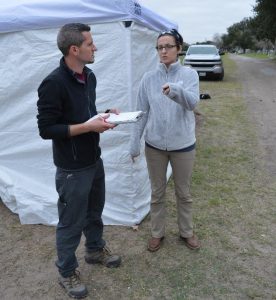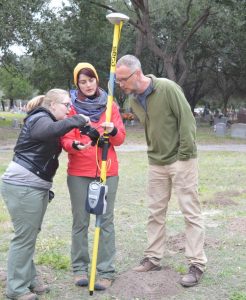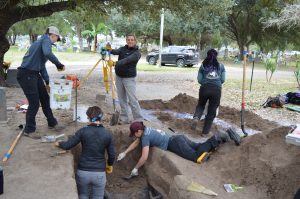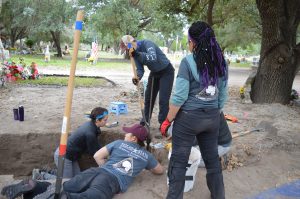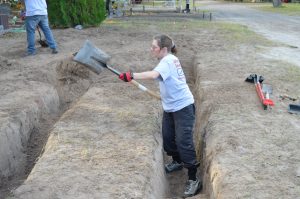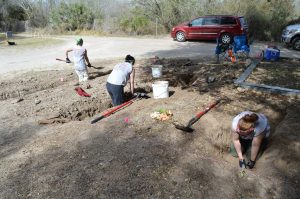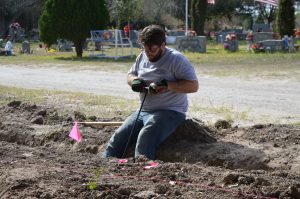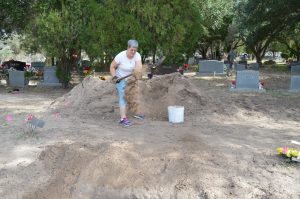Today was a bittersweet day, as it marked not only our last day in the field but also our last full day in Texas. Our job today was to finish Area 1, which meant digging trenches and probing through the remaining three quadrants. Thankfully, we set ourselves up for a productive day yesterday, identifying where the remaining trenches would go and strategizing the most effective ways to accomplish our goals. This morning, we hit the ground running. We divided, conquered, and somehow finished everything by lunch time. We owe a big thanks to three Texas State students who assisted us in both digging and refilling the trenches. Although we didn’t move as much dirt as we did yesterday, we worked really hard and maintained focus despite the soreness that has slowly accumulated throughout the trip.
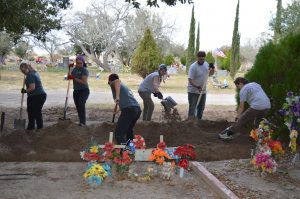

After we ate lunch, we went to the area where Texas State was working to see if they needed any help. They were still in the process of exploring some areas of their section, so they gladly accepted our assistance. While our duties consisted largely of moving dirt, we also helped extend and clean up the excavation area, while Justin assisted in probing the floor and walls of their pit. Once they felt confident that no other burials were present, we started the long process of refilling.
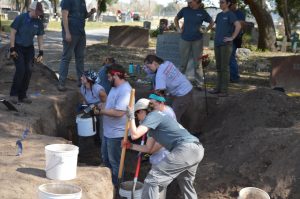
The highlight of my day today was a really great conversation with Sister Pam. We talked about everything. We started talking about what each of us have learned throughout this process, and ended with what we wish we knew more about. This conversation really got me thinking about everything going on down in South Texas and how with new experiences comes new knowledge and new ways of thinking. Sister Pam said something that I think really hits the mark when it comes to the crisis at the border: “honor the history.” Each party involved in this crisis believes that they are doing the right thing, whether it be border patrol, land owners, county officials, the forensics teams, etc. The forensic teams believe they are doing the right thing by exhuming these individuals to begin their process of identification. However, there are individuals that do not agree with what we are doing. Despite differences in opinion, neither side is wrong – we must acknowledge and accept different viewpoints, and honor the history of each party’s stance on the issue. I think that this is important to remember, as it is easy to get caught up in one side of the issue and fail to recognize differing opinions and viewpoints. I would like to say thank you to Sister Pam for reminding me of this and leaving me with advice that will inform not only how I view this humanitarian crisis, but also how I view the world around me.

